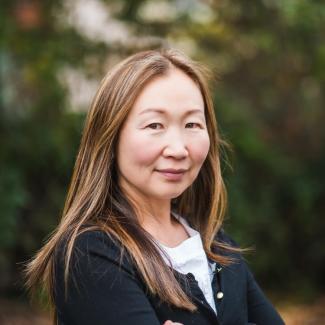
Dear Cultural Survival Community,
Across the globe, too many Indigenous communities live in areas affected by conflict where their lives are at risk on a daily basis simply for going about their daily activities, providing for their families, and protecting the ecosystems that sustain them. These conflicts stem from colonial legacies, war, organized crime, land and resource disputes, conservation efforts, large-scale development, and extractive industries, all of which serve to undermine Indigenous self-determination.
As we have seen time and again, land is often at the core of these conflicts; Indigenous lands are sought after for their rich resources, and the Indigenous Peoples who inhabit these territories are caught in the crossfire. For Indigenous Peoples, land is not a commodity. It exists for collective benefit and must be safeguarded for future generations. In many Indigenous cultures we say, “the land does not belong to you, it’s you who belong to the land.”
Land and rights defenders regularly suffer brutal attacks and criminalization by security forces for exercising their human rights to protest and freedom of expression. Latin America is one of the most dangerous regions to be an Indigenous rights and land defender; three out of four assassinations of environmental defenders take place in Latin America. According to Global Witness, in 2021, roughly 40 percent of murdered environmental defenders were Indigenous—a disproportionately high figure given that Indigenous Peoples comprise roughly 6 percent of the global population. The Business & Human Rights Resource Centre reports that in 2010–2020 there were 495 human rights allegations made against the 115 companies involved in transition mineral extraction. In 2022, 41 percent of attacks against Indigenous Peoples were related to mining.
In this issue of the CSQ, we bring you the voices of people whose lives have been affected by conflict. As Sleydo’, Supporting Chief in the Cas Yikh House of the Gidimt’en Clan of the Wet’suwet’en Nation, says, “all Indigenous Peoples live in conflict with the State in some way or another and have become accustomed to it.” This is what binds us together as an Indigenous rights movement in a common fight against modern colonialism in its many forms. Indigenous communities find hope and healing in their traditional teachings and source strength from their histories, ancestral connections, and reciprocal relationships. Indigenous cosmovisions can help to restore order and make sense of the turmoils and violence they have endured for centuries.
Cliver Ccahuanihancco Arque (Quechua) describes this in detail as he writes about the Andean Peoples’ notion of Chaninchay: it “is the perception of justice and balance for all things . . . a universal but relational animated whole where everything has or possesses soul and feelings. This relationship is constantly nurtured by fellowship, solidarity, and reciprocity in order to seek a diverse, balanced, and just community whole.”
When asked how Indigenous people can be supported in continuing to care for and protect the land, Sleydo’ replied, “Indigenous people can be supported by promoting our voices and supporting the capacity of our communities to engage in decision-making and reoccupy land. We have been fortunate to receive monetary support . . . but we’ve also had many people come and physically support us on the ground. This is an intergenerational struggle.” I agree with Sleydo’s assessment.
We ask you to listen to the voices of Indigenous people and to show up physically in solidarity. And when you can’t, we ask for your monetary support. Please give generously to support Indigenous-led solutions at www.cs.org/donate. This work is only possible with your support.
In Solidarity,
Galina Angarova (Buryat)
Executive Director
